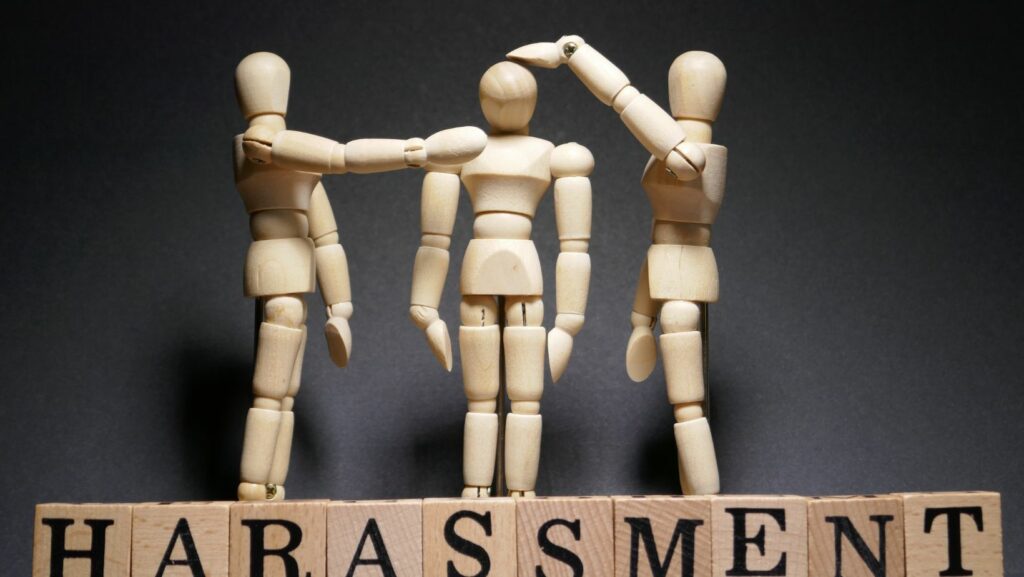

Sexual Harassment Training is Required to Be Conducted at What Specific Interval
As an expert blogger with years of experience, I firmly believe that sexual harassment training is an essential part of any workplace. Here’s why:
- Creating a safe and inclusive work environment: Sexual harassment can have a devastating impact on employees, affecting their mental well-being and overall job satisfaction. By implementing sexual harassment training, organizations can demonstrate their commitment to creating a safe and inclusive work environment for all employees.
- Reducing legal risks: The #MeToo movement and increased public awareness have highlighted the importance of addressing sexual harassment in the workplace. Failure to provide sexual harassment training puts organizations at risk of legal consequences, including expensive lawsuits and damaged reputation. By investing in comprehensive training programs, organizations can mitigate these risks and protect themselves from potential legal liabilities.
- Fostering a culture of respect and equality: Sexual harassment training helps cultivate a culture of respect and equality among employees. When employees understand what constitutes sexual harassment and the consequences for such actions, they are more likely to treat their colleagues with respect and professionalism. This, in turn, leads to a healthier work environment where everyone feels valued and respected.
- Empowering employees to speak up: Many victims of sexual harassment may not feel comfortable coming forward due to fear, shame, or a lack of knowledge about their rights. Sexual harassment training empowers employees by educating them about their rights, available reporting mechanisms, and the support services offered by the organization. It helps create a supportive environment where employees can feel confident in reporting incidents and seeking necessary assistance.
- Improving organizational reputation: Organizations that prioritize sexual harassment training send a clear message to their employees, stakeholders, and the public that they take a strong stance against workplace harassment. This commitment improves the organization’s reputation and helps attract and retain top talent. Employees are more likely to feel confident and supported when they know their organization takes their well-being seriously.
These are just a few reasons why sexual harassment training is so crucial. By implementing comprehensive training programs, organizations can create a positive and inclusive work environment while mitigating legal risks and protecting their employees and reputation.

Legal Requirements for Sexual Harassment Training
Federal Laws
In order to create a safe and inclusive work environment, organizations are required to comply with certain legal obligations regarding sexual harassment training. Here are some important federal laws that outline the training requirements:
- Title VII of the Civil Rights Act of 1964: This federal law prohibits workplace discrimination on the basis of race, color, religion, sex, and national origin. While it does not explicitly require sexual harassment training, it does require employers to take preventive measures to address and prevent harassment in the workplace. Implementing a comprehensive training program is an effective way to meet these obligations.
- The Equal Employment Opportunity Commission’s (EEOC) Guidelines: The EEOC has provided guidelines on sexual harassment prevention, which include providing training to employees. The guidelines recommend that employers develop and implement training programs that address the specific needs of their workforce and are tailored to their organizational culture.
- The Occupational Safety and Health Administration (OSHA): OSHA requires employers to provide employees with a workplace free from recognized hazards. This includes sexual harassment. By establishing a training program that educates employees on what constitutes sexual harassment and how to prevent it, organizations can fulfill their OSHA obligations.
State Laws
In addition to federal laws, many states have their own requirements for sexual harassment training. These laws can vary in terms of who is covered, the frequency of training, and the specific topics that must be covered. It’s essential for employers to familiarize themselves with the laws of the states in which they operate to ensure compliance.
Some states require employers to provide sexual harassment training to all employees, while others mandate training for supervisors and managers. Some states even have specific guidelines on the content and duration of the training.
By understanding and meeting the requirements of state laws, organizations can ensure that their training programs are comprehensive and comply with legal obligations.













